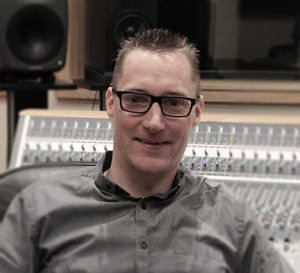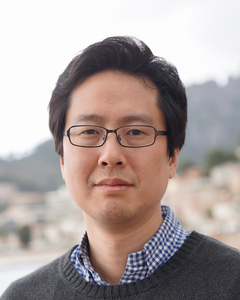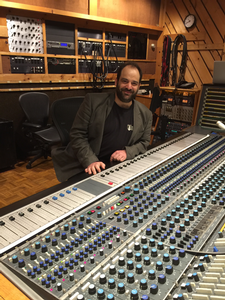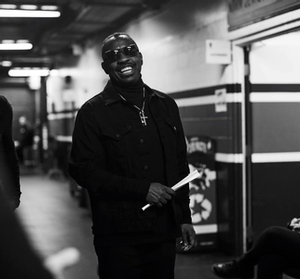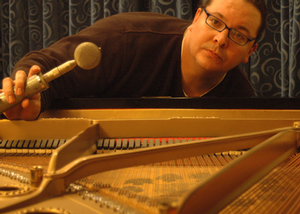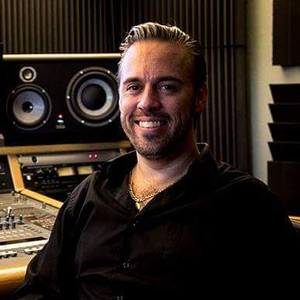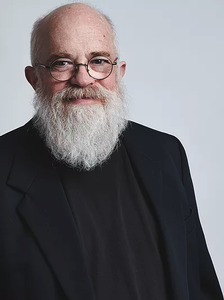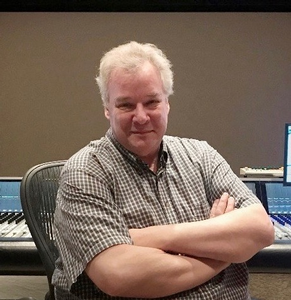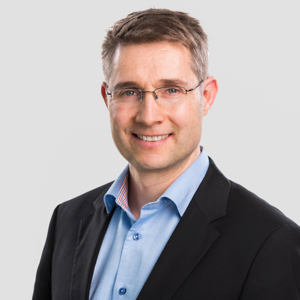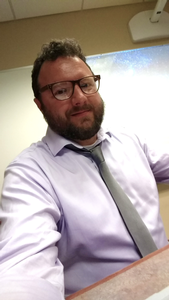AES New York 2019
Recording & Production Track Event Details
Wednesday, October 16, 9:15 am — 10:45 am (1E21)
Recording & Production: RP01 - Miniature Microphones—Why Are They So Attractive?
Chair:Eddy Bøgh Brixen, EBB-consult - Smørum, Denmark; DPA Microphones - Allerød, Denmark
Panelists:
John Born, Senior Product Manager, Shure Inc. - Niles, IL, USA
Benjamin Nimkin, independent sound designer - New York, NY, USA
Ryan Rumery, Sounddesigner & Composer, Pen o Three - Brooklyn, NY, USA
Miniature microphones are used all over the place: For stage sound, for film sound, for television, for sound effects, etc. Traditionally these fine instruments are electret condenser types. This is why it has been possible to make them small with data comparable to many of the bigger brothers and sisters. This event has a panel of experts both from the manufacturing side as well as the user side. In this workshop some of the leading manufacturers will present their unique technology and some of the top designers from the live theater/film will demonstrate how the stuff works in practical sound design. Also a look into future technologies will be given that includes binaural applications for VR/AR.
 | This session is presented in association with the AES Technical Committee on Microphones and Applications |
Wednesday, October 16, 9:15 am — 10:45 am (1E08)
Game Audio & XR: GA02 - Abbey Road Spatial Audio Forum—Music Production in VR and AR
Chair:Gavin Kearney, University of York - York, UK
Panelists:
Stephen Barton, Respawn Entertainment/EA - Los Angeles, CA, USA; Afterlight Inc. - Los Angeles, CA, USA
Etienne Corteel, L-Acoustics - Marcoussis, France
Oliver Kadel, 1.618 Digital - London, UK; University Of West London - London, UK
Muki Kulhan, Muki International - UK
Hyunkook Lee, University of Huddersfield - Huddersfield, UK
Mirek Stiles, Abbey Road Studios - London, UK
Virtual and augmented reality offers a new platform for the creation, production, and consumption of immersive music experiences. Immersive technologies now have the power to create experiences that transform how we experience music, from transporting the listener to the original recording studio in VR or even bringing the musicians to their own living room in an AR scenario. However, the creation of such audio experiences has many challenges. With different parts of the immersive audio production chain being developed by various third parties, there is a danger of confusing the producer/musician and perhaps scaring off talent before we even get off the ground. Can we do better? What are the barriers and how can they be broken down? What are the strengths and weaknesses of existing tools? Can we achieve better clarity in the different formats that are available, and should we move towards standardization? In this open panel discussion of the Abbey Road Spatial Audio Forum, we will be looking at workflow challenges for recording, mixing, and distributing music for VR and AR.
 | This session is presented in association with the AES Technical Committee on Audio for Games |
Wednesday, October 16, 10:30 am — 12:00 pm (1E07)
Broadcast & Online Delivery: B01 - Podcast Production Studios
Co-moderators:Romina Larregina, WSDG Partner/Project Manager
John Storyk, Walters-Storyk Design Group - Highland, NY, USA
Panelists:
John DeLore, Chief Engineer, Stitcher (Scripps) - New York, NY, USA
Judy Elliot-Brown, Walters Storyk Design Group - Highland, NY, USA; Rocket Science - Surprise, NY, USA
Austin Thompson, Technical Director, Gimlet Media - Brooklyn, NY, USA
2019 has proved itself a watershed year for podcasting. In addition to achieving global recognition as an influential information/entertainment format, podcasts have motivated the construction of major production facilities in New York, Los Angeles, and other major cities around the U.S. While these complex facilities would seem to be focused on traditional production/post-production services, the nature of Podcast production requires a number of purpose-built design considerations unique to the medium. This panel will explore the priorities of Gimlet Media and Stitcher, two of the largest, most successful, most sophisticated and most prominent players in the field. Parallels and contrasts in technology choices, physical design and acoustic requirements will be discussed. Floor plans and a selection of high quality photos will reveal the inner workings of both these showplace facilities.
Wednesday, October 16, 10:45 am — 12:00 pm (1E06)
Immersive & Spatial Audio: IS02 - Music Production in Immersive Formats: Alternative Perspectives
Presenters:Thomas Aichinger, scopeaudio - Austria
Zachary Bresler, University of Agder - Kristiansand S, Vest-Agder, Norway
Sally Kellaway, Microsoft - Seattle, WA, USA
Jo Lord, University of West London - London, UK
Evidenced by the large volume of presentations on immersive audio at the previous AES conventions in Dublin and New York and the AES conferences on Immersive and Interactive Audio, Virtual and Augmented Reality, and Spatial Reproduction, 3D audio is of growing interest within our field. As Anastasia Devana of Magic Leap stated in her keynote at the IIA conference, it is the “bleeding edge” of our industry. In spatial audio, there are many competing ideas and technologies from delivery formats to production standards and aesthetics. From the perspective of music creators, the norms of music production and the terms used to describe practice are often clumsy or not helpful when applied in 3D. It is in this context that we propose this workshop on immersive music production. We will discuss several questions from the perspective of creatives in immersive and interactive music content. What are the changing ways that creators use and exploit 3D technologies? How do we describe the way that we make content for such systems? What are the practices, standards, and formats that creators use, and which ones should they use in the future? What are the interesting use-cases for 3D audio that challenge the way we think about music and audio production?
Zachary Bresler, Ph.D. fellow, University of Agder. Research explores music production in immersive formats and the staging of listeners in immersive compositional design.
Jo Lord, Ph.D. student, University of West London. Research investigates the development, practical application, and aesthetic suitability of 3D mix technique for record production.
Dr. Eve Klein, senior lecturer in music technology and popular music, University of Queensland. Currently researches within the VR/AR space, creating large-scale immersive festival experiences.
Thomas Aichinger, founder, scopeaudio. Studio specialized in sound design and post-production, focusing on spatial audio productions for VR and 360° videos.
Wednesday, October 16, 11:00 am — 12:00 pm (1E21)
Recording & Production: RP02 - Evolution of Album Production from Start to Finish
Moderator:Terri Winston, Women's Audio Mission - San Francisco, CA, USA
Panelists:
Gloria Kaba, Little Underground
Heba Kadry, Heba Kadry Mastering - Brooklyn, NY, USA
Simone Torres, Vocal Producer and Multi Platinum Engineer (Normani, Cardi B, ) - Atlanta, GA, USA; Los Angeles, CA, USA
The world’s top producers, engineers, and artists discuss the latest work flow and production tips that most effectively move projects from pre-production to tracking and editing to mixing and mastering. Panel will explore the recording process from all angles of traditional acoustic production, beat-making, topline writing, and mastering.
 | This session is presented in association with the AES Technical Committee on Recording Technology and Practices |
Wednesday, October 16, 1:15 pm — 2:15 pm (1E09)
Audio Builders Workshop: AB02 - Custom Consoles / Power and Grounding
Chair:Owen Curtin, Audio Builders Workshop - Lexington, MA, USA; Bridge Sound and Stage - Cambridge, MA, USA
Presenters:
Eddie Ciletti, Manhattan Sound Technicians, Inc. - West Saint Paul, MN, USA
David Thibodeau, Analog Devices - Wilmington, MA, USA
After you win the auction, you will need to power up your new toy. Be careful not to release the magic smoke! Oh no, why is the noise floor louder than your lawnmower? Dave Thibodeau and Eddie Ciletti have restored more vintage gear then most of us have seen, and they will explain the ins and out of powering and grounding the projects on your bench.
Wednesday, October 16, 1:30 pm — 3:00 pm (1E21)
Recording & Production: RP03 - So Unforgettable—2 Iconic Albums from 2 Non-Studio Spaces
Moderator:Alex Case, University of Massachusetts Lowell - Lowell, MA, USA
Presenter:
Kevin Killen, New York, NY, USA
U2’s The Unforgettable Fire, and Peter Gabriel’s So were released just two years apart, and Kevin Killen was part of both. These records represented major points of creative inflection for each artist. Most of the production took place outside of any traditional studio, recording U2 in a castle and Gabriel in a converted cow shed. These special projects placed unique demands on the producers and engineers to deliver. The Unforgettable Fire was released in 1984, So hit the world in 1986, and the results speak for themselves. The records have become sonic touchstones for many artists and engineers since. Interviewed by Alex Case, Kevin Killen takes us into the sessions so that we might learn from his experiences.
Wednesday, October 16, 1:30 pm — 2:30 pm (1E06)
Student / Career: SC03 - Student Recording Critiques
Moderator:Ian Corbett, Kansas City Kansas Community College - Kansas City, KS, USA; off-beat-open-hats recording & sound reinforcement
Students! Come and get tips, tricks, and advice to push your skills to the next level! The Student Recording Critiques are non-competitive listening sessions in which students get to listen to their recordings and productions on a world-class playback system and then receive feedback from a panel of renowned industry professionals. Students at any stage of their studies can sign up to participate. Sign up at the student (SDA) booth immediately on arrival at the convention and deliver stereo or non-interleaved 5.1 channel mixes as 44.1 Khz/24 bit AIFF or WAVE files, to the SDA booth when you sign up. If you sign up, please make sure you arrive on time at the start of the session, otherwise alternates will be placed on the schedule in your place. Finalists in the Recording Competition are excluded from submitting to these events so that as many students as possible can benefit from this type of feedback. (Recording competition finalists get this feedback as part of the competition process.) These events are generously supported by PMC.
Wednesday, October 16, 2:45 pm — 4:15 pm (1E15+16)
Special Event: SE03 - The Loudness War is Over (If You Want It)
Moderator:George Massenburg, Schulich School of Music, McGill University - Montreal, Quebec, Canada; Centre for Interdisciplinary Research in Music Media and Technology (CIRMMT) - Montreal, Quebec, Canada
Panelists:
Serban Ghenea
Gimel "Guru" Keaton
Bob Ludwig, Gateway Mastering Studios, Inc. - Portland, ME, USA
Thomas Lund, Genelec Oy - Iisalmi, Finland
Ann Mincieli, Jungle City Studios - New York, NY, USA
Now that streaming dominates the music listening landscape, it’s time to revisit what loudness really is and how to manage it. Companies including Apple, YouTube, and Spotify each have their own measurement standards and loudness targets, while today’s production paradigm often lacks a traditional infrastructure of project managers and gatekeepers with technical expertise. Artists and record companies—as they always have—want their songs to sound at least as loud as the ones playing before and after them. The stakes are high. So, what to do?
The truth is, we, the creators, are responsible for understanding all of the issues in the loudness discussion. No one else is going to do it. Join us for this lively and informative conversation with some of the best minds in the business who will shed light on both the current unhappy state of loudness and what creators can do to make it better.
Wednesday, October 16, 3:00 pm — 4:00 pm (1E17)
Student / Career: SC04 - Mix It! Improving Your Mixes and Your Mixing Workflow
Chair:Ian Corbett, Kansas City Kansas Community College - Kansas City, KS, USA; off-beat-open-hats recording & sound reinforcement
Panelists:
Cosette Collier, Middle Tennessee State Univ. - Murfreesboro, TN, USA
Yuri Lysolvanov, Flashpoint Chicago, a campus of Columbia College Hollywood - Chicago, IL, USA
This workshop, ideal for students, new engineers, and more experienced engineers looking to speed up their workflow and productivity in studio mixing, live sound and event production, will discuss topics including:
• Starting a mix, and the key elements of a mix.
• Identifying problems or challenges, and deciding on the best solutions to potential issues.
• Best practice workflows or procedures that can be followed in order to make the process of mixing an easier, faster, and more predictable experience.
• Common mistakes to avoid.
• Gear!
• Getting the job done and finishing the mix.
Wednesday, October 16, 3:15 pm — 4:45 pm (1E21)
Recording & Production: RP04 - Spatial Audio Microphones
Moderator:Helmut Wittek, SCHOEPS Mikrofone GmbH - Karlsruhe, Germany
Panelists:
Svein Berge, Harpex Ltd - Berlin, Germany
Gary Elko, mh acoustics - Summit, NJ USA
Len Moskowitz, Core Sound LLC - Teaneck, NJ, USA
Tomasz Zernicki, Zylia sp. z o.o. - Poznan, Poland
Multichannel loudspeaker setups as well as Virtual Reality applications enable Spatial sound to be reproduced with large resolution. However, on the recording side it is more complicated to gather a large spatial resolution. Various concepts exist in theory and practice for microphone arrays. In this workshop the different concepts are presented by corresponding experts and differences, applications as well as pros and cons are discussed. The different array solutions include coincident and spaced Ambisonics arrays as well as Stereophonic multi-microphone (one-point) arrays.
 | This session is presented in association with the AES Technical Committee on Microphones and Applications |
Wednesday, October 16, 4:30 pm — 5:30 pm (1E15+16)
Special Event: SE04 - The Making of Sheryl Crow's "Threads"
Moderator:Glenn Lorbecki, Glenn Sound Inc. - Seattle, WA, USA
Panelist:
Dave O'Donnell, Mixer/Engineer
An analysis of the making of the new Sheryl Crow record Threads featuring a star-studded cast of talented artists.
Wednesday, October 16, 4:30 pm — 6:00 pm (1E06)
Recording & Production: RP05 - 3D Microphone Technique Shootout—9.1 Demo and Discussion
Presenter:Hyunkook Lee, University of Huddersfield - Huddersfield, UK
3D audio is rapidly becoming an industry standard for film, music, virtual reality, etc. Various types of 3D microphone arrays have been proposed over the recent years, and it is important to understand the perceptual differences among different techniques. This workshop presents a large-scale 3D mic array shootout recording session that has been conducted in St. Paul's concert hall in Huddersfield, UK. An open-access database for research and education has been created from this session. A total of 104 channels of audio were recorded simultaneously for 7 different main array configurations for 9.1 (a.k.a. 5.1.4) reproduction (OCT, 2L-Cube, PCMA v1&2, Decca Tree, Hamasaki-Cube v1&2), a 32-channel spherical microphone array, a First-Order Ambisonics microphone and a dummy head. The microphones used for the main arrays were from the same manufacturer to minimize spectral differences. Various sound sources including string quartet, piano trio, a cappella singers, organ, clarinet, piano, etc., were recorded. This workshop will explain the basic psychoacoustic principles of the arrays used, with accompanying 9.1 demos of the recordings and pictures. The pros and cons of each technique depending on the type of sound source will be discussed in depth.
Thursday, October 17, 9:00 am — 10:00 am (1E08)
Acoustics & Psychoacoustic: AP02 - Optical/Fiber Optic Microphone: When and Why should I Consider Using an Optical Microphone?
Presenters:Ronald Ajemian, Owl Fiber Optics - Flushing, NY, USA
Yuvi Kahana, Optoacoustics - Israel
Moshav Mazor, Israel
A brief history of the Optical/Fiber Optic Microphone will be discussed with descriptions and uses in audio related fields for picking up sounds in pro and non-pro audio applications. Dr. Yuvi Kahana obtained his Ph.D. in numerical acoustics from ISVR, Southhampton, UK and is CEO of Optoacoustics. Dr. Kahana has over 20 years eperience as he leads technology development and patent registration of optical microphone technology, while creating new innovative products in new markets. He will present the current and related applications of this amazing breakthrough for recording sound compared to conventional electroacoustic transducer types of microphones. A Questions and Answers period will be taken after the discussion.
 | This session is presented in association with the AES Technical Committee on Fiber Optics for Audio |
Thursday, October 17, 9:30 am — 11:00 am (1E15+16)
Special Event: HH01 - Chopped and Looped—Inside the Art of Sampling for Hip-Hop
Moderator:Paul "Willie Green" Womack, Willie Green Music - Brooklyn, NY, USA
Panelists:
Just Blaze, Jay-Z, Kanye West
Breakbeat Lou, Ultimate Breaks and Beats
Hank Shocklee, Shocklee Entertainment - New York, NY, USA
Ebonie Smith, Atlantic Records/Hamilton Cast Album
Celebrating the art of the audio collage, the panelists will discuss the production technique that launched a genre. Exploring the process of digging for samples, techniques and tools for composition, and concepts for processing and mixing, this panel will cover all aspects of sample driven production.
Thursday, October 17, 10:30 am — 12:00 pm (1E06)
Recording & Production: RP06 - Immersive Music Listening Session: Critical Listening and Recording Techniques
Presenters:David Bowles, Swineshead Productions LLC - Berkeley, CA, USA
Paul Geluso, New York University - New York, NY, USA
In this workshop, new immersive music recordings will be presented followed by a brief technical discussion by their creators. Paul Geluso and David Bowles will host the session presenting their recent work and invite other recording engineers and music producers working in immersive formats to present recent works as well. Tracks will be played in their entirety to preserve their artistic impact and create an environment for critical listening. Following playback of each work will be a brief presentation and Q and A session. New immersive recording techniques designed specifically to optimize Dolby ATMOS compatibility will be presented by Geluso and Bowles as well.
Thursday, October 17, 10:45 am — 11:45 am (1E12)
Recording & Production: RP07 - Podcast Production
Moderator:Elena Botkin-Levy, Women’s Audio Mission - San Francisco, CA, USA
Panelists:
Chiquita Paschal, Uncivil, Another Round
Name Withheld, Removed at the request of the presenter.
Jenna Weiss-Berman, Pineapple Street Media - Brooklyn, NY, USA
What makes a good podcast? What makes it worth listening to? Producers from top podcasts like Uncivil, The Daily, The Habitat and podcasting companies like Gimlet Media and Pineapple Media break-down the production process and technical elements of successful podcasting
 | This session is presented in association with the AES Technical Committee on Recording Technology and Practices |
Thursday, October 17, 11:15 am — 12:15 pm (1E21)
Recording & Production: RP08 - Changing Roles In the Audio Industry
Moderator:Paul "Willie Green" Womack, Willie Green Music - Brooklyn, NY, USA
Panelists:
Ariel Borujow, Westward Music Group Inc.
Ken "Duro" Ifill, Jay-Z & Alicia Keys/Erykah Badu/Will Smith
Mike Kuz, Drake, J. Cole, Offset, Teyana Taylor
As the music industry and technology change at a rapid rate, the previously clearly-defined roles in the studio have blurred the lines as well. Modern music professionals often find themselves wearing the hats of producer, engineer, mixer, and more. This panel will explore the shifting responsibilities of the modern music industry.
Thursday, October 17, 12:00 pm — 1:00 pm (1E06)
Student / Career: SC09 - Student Recording Critiques
Moderator:Ian Corbett, Kansas City Kansas Community College - Kansas City, KS, USA; off-beat-open-hats recording & sound reinforcement
Students! Come and get tips, tricks, and advice to push your skills to the next level! The Student Recording Critiques are non-competitive listening sessions in which students get to listen to their recordings and productions on a world-class playback system and then receive feedback from a panel of renowned industry professionals. Students at any stage of their studies can sign up to participate. Sign up at the student (SDA) booth immediately on arrival at the convention and deliver stereo or non-interleaved 5.1 channel mixes as 44.1 Khz/24 bit AIFF or WAVE files, to the SDA booth when you sign up. If you sign up, please make sure you arrive on time at the start of the session, otherwise alternates will be placed on the schedule in your place. Finalists in the Recording Competition are excluded from submitting to these events so that as many students as possible can benefit from this type of feedback. (Recording competition finalists get this feedback as part of the competition process.) These events are generously supported by PMC.
Thursday, October 17, 1:00 pm — 1:45 pm (1E12)
Acoustics & Psychoacoustic: AP03 - Shame on Us: Phase Is Not Polarity!
Presenter:Cesar Lamschtein, Kaps Audio Production Services - Montevideo, Uruguay; Mixymaster - Montevideo, Uruguay
Being disappointed with the industry regarding how messy the concepts of PHASE and POLARITY get to students, general amateur audio enthusiasts and even seasoned professionals. I think that AES is to the only one that can and SHOULD do something to encourage the stopping of the practice of freely exchanging these terms.
E.g, • major console brands, either analog and digital in either plain word or the ø symbol; • Daw software (nuendo, reaper, etc.); • outboard equipment (including such classics as 1073 neve eq); • videos (Allan Parsons MTCS DVD); • books.
During this presentation I will: • Acknowledge the situation: I´ll show the results of a survey done on the 2 past NY conventions, where 100% of the polarity switches in the exhibition floor was reviewed and photographed, showing inconsistency in the naming of the switch even in different products from the same manufacturer; • Teach terms: I´ll state actual definitions and clarify the concepts of phase and polarity with audio examples of each; • Encourage the discussion: I want to gather people together to nourish this venture, discussing possible abbreviation and symbol (ICON) to represent polarity in order to gather information that may lead to an AES TD; • I´ll invite fellow audio men and women to speak properly about those important concepts (and THEN be able to think properly about this quite basic concepts, albeit misunderstood).
Thursday, October 17, 1:15 pm — 2:45 pm (1E08)
Historical: H03 - Rudy Van Gelder: A Legacy in Audio Engineering
Presenters:Richard Capeless, Deep Groove Mono - New York, NY, USA
Thomas Fine, Tom Fine Audio Services - Brewster, NY, USA
Ashley Kahn
Don Sickler, Second Floor Music - New York, NY, USA
Maureen Sickler, Second Floor Music - New York, NY, USA
Rudy Van Gelder, or “RVG” as most jazz fans know him, was responsible for laying to tape hundreds of classic jazz recordings spanning a period of over five decades, which were released on a variety of labels including Blue Note, Prestige, Savoy, Impulse, Verve, and CTI. His rise from obscurity to engineering fame centered on a unique approach to his work, about which he was famously secretive. Beginning in a makeshift living room recording studio in his parents’ Hackensack, New Jersey, home, Van Gelder would eventually build a one-of-a-kind cathedral-like studio in nearby Englewood Cliffs that is still in use today.
Always on the cutting edge of technology, Van Gelder used a plethora of state-of-the-art tools to create “the Van Gelder Sound,” a distinct and easily recognizable sonic fingerprint that helped define the sound of jazz on record during the classic analog era of the 1950s and 1960s. Van Gelder’s legacy is that of an individual who fully realized his dream to work in a creative capacity, and his story serves as inspiration for anyone striving to make their lifelong dreams a reality.
Sharing that story will be Michael Cuscuna, producer and founder of Mosaic Records, and Don Sickler, publisher and co-founder of Second Floor Music, who along with his wife Maureen, currently runs the Englewood Cliffs studio.
Thursday, October 17, 1:30 pm — 2:30 pm (1E21)
Recording & Production: RP09 - The Doppler Gang - A Panel of Pros Discuss the Pros and Cons of Pitch Change
Co-moderators:Anthony Agnello, Eventide Inc. - Little Ferry, NJ, USA
Richard Factor, Eventide Inc. - Little Ferry, NJ, USA
Panelists:
Alex Case, University of Massachusetts Lowell - Lowell, MA, USA
Bob Clearmountain, Mix This! - Pacific Palisades, CA, USA
George Massenburg, Schulich School of Music, McGill University - Montreal, Quebec, Canada; Centre for Interdisciplinary Research in Music Media and Technology (CIRMMT) - Montreal, Quebec, Canada
Susan Rogers, Berklee College of Music - Boston, MA, USA
Tony Visconti, (David Bowie, T.Rex)
Pitch change processing is the basis for many tracking and mixing effects. Analog tape invited tape speed manipulation, and the effect became digitally available in the mid-70s. A broad set of pitch effects has evolved ever since, led in part by these panelists. Learn about their approaches and listen to the results, from obvious to subliminal, from logical to just plain wacky.
Thursday, October 17, 1:45 pm — 2:45 pm (1E15+16)
Special Event: SE06 - Lunchtime Keynote: Steve Jordan
Presenter:Steve Jordan, Steve Jordan Recording - New York, NY, USA
The title of Steve Jordan's lunchtime keynote is "The Love of Recording."
Thursday, October 17, 2:45 pm — 4:15 pm (1E08)
Historical: H04 - Spike Jones: Preposterous Precision
Chair:Mike Wisland, Utah Valley University - Orem, UT, USA
Panelists:
Arlen Card, Utah Valley University - Orem, UT, USA
Leslie Ann Jones, Recording Engineer and Producer, Director of Music Recording and Scoring, Skywalker Sound - San Rafael, CA, USA
Emily Taggart
Professor Mike Wisland will present Spike’s life including his childhood, early professional jobs, leading to the formation of his massively successful parody band, Spike Jones and his City Slickers. There will also be a video presentation by Emily Taggart on the bandboy of Spike’s and Leslie Ann Jones Spike’s daughter, who will also be present for a Q&A After the presentation.
Thursday, October 17, 2:45 pm — 3:45 pm (1E21)
Recording & Production: RP10 - Tuning the Vocal—Watch, Listen, and Learn
Presenters:Alex Case, University of Massachusetts Lowell - Lowell, MA, USA
Ian Kagey, Berklee NYC - New York, NY, USA
Ian Kagey is a New York City-based engineer and producer constantly called upon to tune vocal tracks. Clients count on him to tune vocals while preserving emotion, timbre, and the artist’s personality. Budgets demand that such care and precision happen quickly. In this live demonstration, you’ll observe his approaches and tap into his thoughts as he takes a raw vocal up to professional tuning standards. In a parallel interview, by Alex U. Case, practical considerations are reviewed, detailing workflow and keyboard short cuts. Aesthetic issues are discussed, finding the balance between pitch perfection and musical expression.
Thursday, October 17, 3:00 pm — 4:00 pm (1E15+16)
Special Event: SE07 - Triple Threat: The Art, Production & Technology of Making Music
Moderator:Paul Verna, Paul Verna Media - New York, NY, USA
Presenters:
Danny Kortchmar, Legendary GRAMMY nominated guitarist, songwriter and producer (Jackson Browne, Don Henley, James Taylor) - New York, NY, USA
Steve Jordan, Steve Jordan Recording - New York, NY, USA
With a background of dozens of platinum record credits as a musician, artist, songwriter, producer and engineer, Danny Kortchmar sits down to discuss all aspects of making music both creatively and technically. From going to top commercial studios of the world, to building his own home studio to performing on stage with some of the top artists in the world, Kortchmar shares his secrets and experiences, digital and analog, then and now.
Thursday, October 17, 3:00 pm — 6:00 pm (1E06)
Student / Career: SC11 - Student Recording Competition—Part 1
The Student Recording Competition is a highlight at each convention. A distinguished panel of judges participates in critiquing finalists of each category in an interactive presentation and discussion. The top three finalists in each category, as identified by our judges, present a short summary of their production intentions and the key recording and mix techniques used to realize their goals. They then play their projects for all who attend. Meritorious awards are determined here and will be presented at the closing Student Delegate Assembly Meeting (SDA-2) on Saturday. The competition is a great chance to hear the work of your fellow students at other educational institutions. A complete list of judges can be found on the SDA website.
Thursday, October 17, 4:00 pm — 5:30 pm (1E21)
Recording & Production: RP11 - Pitch Shift FXpertise – Record and Mix Strategies for the Broad Range Pitch Effect Possibilities
Presenter:Alex Case, University of Massachusetts Lowell - Lowell, MA, USA
Pitch shift as an effect has been a part of sound recording from the very beginning of audio and continues to evolve briskly today. Recording at one speed but playing back at another has been the pitch shift modus operandi across all analog formats—cylinders, disks, and tape. Digital audio continued these time-domain techniques, exploiting sample rate differences between record and playback. The digital luxury of frequency-domain pitch shift, offering new effects possibilities, became an important part of the pop engineer’s tool kit in the late 90s.
From this are born a seemingly endless set of pitch-based outcomes. But what are we to make of the aesthetic possibilities? How do we organize its creative potential? Alex U. Case auditions a curated set iconic examples of pitch shifting effects in pop music and analyses them through multiple lenses—music, signal processing and psychoacoustics—to define the full range of the effect, giving it structure, and empowering you to develop your own strategies for the use of Pitch FX in your next project.
Thursday, October 17, 4:30 pm — 5:30 pm (1E08)
Immersive & Spatial Audio: IS04 - 3D Audio Philosophies & Techniques for Commercial Music
Presenter:Bt Gibbs, Skyline Entertainment and Publishing - Morgan Hill, CA, USA; Tool Shed Studios - Morgan Hill, CA, USA
3D Audio (360 Spatial) for immersive content has made massive strides forward in just the first five months of 2019. However, the majority of content remains in the animated VR world. Commercial audio (in all genres) continues to be delivered across streaming and download platforms in L+R stereo audio. With the binaural (headphone) delivery options for spatial audio as a topic of discussion for many major hi-res audio delivery platforms, commercial music delivery options are coming very soon. The ability for commercial artists to deliver studio quality audio (if not MQA) to consumers with an "in-the-studio" experience soon will be delivered in ambisonic formats.
This presentation will demonstrate studio sessions delivered in 360 video and stereo mixes translated to static (non-HRTF) 360 audio, which was originally captured for standard stereo delivery through traditional streaming and download sites. All of this audio is prepared to be delivered in a simultaneous (and rapid) turn around from pre-production to final masters delivered on both 360 and stereo platforms. To do so, requires planning in even in the earliest of (pre-production) stages prior to actual recording.
Thursday, October 17, 4:30 pm — 5:30 pm (1E13)
Acoustics & Psychoacoustic: AP04 - Circles of Confusion
Chair:Thomas Lund, Genelec Oy - Iisalmi, Finland
Panelists:
Sean Olive, Harman International - Northridge, CA, USA
Susan Rogers, Berklee College of Music - Boston, MA, USA
Circles of confusion in pro audio are replacing technical limitations with cognitive limitations. Without proper anchoring of spectral balance and level, drifting over time is foreseeable in self-referenced systems, thereby putting legacy recordings at the risk of sounding dated for no good reason.
The panel will discuss monitoring requirements that stand the test of time, recent studies on active sensing, between listener variation and “slow listening”; and a possible revision of ITU-R BS.1116. The topics are addressed from a more practical perspective in Friday’s AP06 session.
Thursday, October 17, 5:30 pm — 7:00 pm (Off-Site 1)
Technical Tour: H05 - Limited Engagement Screening, Tom Dowd and the Language of Music
Venue: Dolby Theater, 1350 Avenue of the Americas
(corner 6th Ave. & W 55th St.)
Enter on W. 55th St. @1350 W. 55th St.
Filmmaker Mark Moormann premiered this independently produced feature-length documentary at the 2003 Sundance Film Festival, with its international premiere at the 2003 Toronto International Film Festival. It has screened at film festivals, theaters, and television screens around the world to widespread critical acclaim.
A long-time engineer and producer for Atlantic Records, Tom Dowd was responsible for some of the most important R&B, rock, and jazz records ever made. In his own words, Tom relates how he went from working on the Manhattan Project, while still high school age, to recording some of the greatest music ever made over the last half of the 20th Century.
In the course of the film we see interviews with Ahmet Ertegun, Jerry Wexler, Al Schmitt, Eric Clapton, Aretha Franklin, Ray Charles, Les Paul, Phil Ramone, Joe Bonamassa, and many more of Tom’s musical collaborators.
After the film screening, we will be honored to have Tom’s daughter Dana Dowd share memories and answer questions.
Seating is limited and by advance ticket only.
NOTE: No food or drink (including water) is allowed in the Dolby Theater, so come hydrated and fed.
Doors will open shortly after 5, the program will start promptly at 5:30. Movie at 5:35pm, Q&A will follow at 7:05; event ends at 8:00 sharp.
Presented by the AES Historical Track in conjunction with Language of Music Films LLC and Dana Dowd
Friday, October 18, 9:00 am — 10:15 am (1E06)
Recording & Production: RP12 - Recording and Realizing Immersive Classical Music For, and with, Dolby Atmos
Moderator:John Loose, Dolby Laboratories, Inc. - San Francisco, CA, USA
Panelists:
David Bowles, Swineshead Productions LLC - Berkeley, CA, USA
Morten Lindberg, 2L (Lindberg Lyd AS) - Oslo, Norway
Jack Vad, San Francisco Symphony - San Francisco, CA, USA
Producing for Classical releases in immersive formats like Dolby Atmos has unique considerations unique to the genre. Dolby’s John Loose will moderate this lively panel of Grammy nominated and winning Classical engineers and producers will discuss translation from microphones to immersive playback environments including binaural Dolby Atmos playback.
Friday, October 18, 10:15 am — 11:45 am (1E08)
Recording & Production: RP13 - Platinum Mastering: Mastering Immersive Audio
Moderator:Michael Romanowski, Coast Mastering - Berkeley, CA, USA; The Tape Project
Panelists:
Stefan Bock, msm-studios GmbH - Munich, Germany
Gavin Lurssen, Lurssen Mastering - Los Angeles, CA, USA
Andres A. Mayo, 360 Music Lab - Buenos Aires, Argentina
Darcy Proper, Darcy Proper Mastering at Valhalla Studios - Auburn, NY, USA
Mark Wilder
The Long Running Platinum Mastering Panel will focus on Mastering in an Immersive environment. Mastering experts from around the world discuss the challenges and expectations of mastering for release and distribution. The focus will be on the many aspects of the emerging popularity of immersive music and the challenges mastering engineers face with delivery, formats, work flow and many other details related to providing the best combination of the Art and Technical aspects for the artist and the consumer. There are many different formats, with different requirements, vying for prominence and mastering engineers need to be prepared for each.
Friday, October 18, 11:00 am — 12:00 pm (1E21)
Recording & Production: RP14 - For the Record: Engineering Prince
Moderator:Leslie Ann Jones, Recording Engineer and Producer, Director of Music Recording and Scoring, Skywalker Sound - San Rafael, CA, USA
Panelists:
Lisa Chamblee
Sylvia Massy, Unhinged Industries - Ashland
Peggy McCreary
Susan Rogers, Berklee College of Music - Boston, MA, USA
Women's Audio Mission (WAM) is proud to present a special panel discussion with a group of top engineers who worked closely with the legendary artist Prince. Come hear Sylvia Massy, Susan Rogers, Peggy McCreary, and Lisa Chamblee recount their experiences of working with the prolific star on albums like Purple Rain, Diamonds and Pearls, Fury, 3121, and D.M.S.R., as well as other tales of Paisley Park. Panel will be moderated by the Grammy-winning engineer, Leslie Ann Jones.
 | This session is presented in association with the AES Technical Committee on Recording Technology and Practices |
Friday, October 18, 11:15 am — 12:15 pm (1E11)
Archiving & Restoration: AR03 - Metadata from Creation to Consumption to Preservation
Chair:Brad McCoy, Library of Congress - Culpeper, VA, USA
Panelists:
Tony Brooke, DDEX, Pandora, Recording Academy - San Francisco, CA, USA
Maureen Droney, The Recording Academy - Los Angeles, CA, USA
Tony Gervino
Paul Jessop, County Analytics Ltd - Dunstable, Bedfordshire, UK
This panel approaches metadata from the from the varied perspectives of audio archivists, music creators, labels, distributors, music services, and standards bodies in order to foster a collaborative conversation around how to capture, store, and distribute information about recorded sound. Panelists will compare best practices in the library world to how labels handle the same information and discuss how metadata travels through the pipeline (or doesn’t) to streaming services and end users.
Why is collecting and delivering rich metadata critical for your projects and career? Watch this short video.
Friday, October 18, 11:15 am — 12:15 pm (1E15+16)
Special Event: SE10 - How We Make Music—Crossing the Decades from Analog to Digital
Moderator:Chris Lord-Alge, Mix LA - Los Angeles, CA, USA
Panelists:
Danny Kortchmar, Legendary GRAMMY nominated guitarist, songwriter and producer (Jackson Browne, Don Henley, James Taylor) - New York, NY, USA
Presenter:
Eddie Kramer, Remark Music Ltd. - Woodland Hills, CA, USA
Panelists:
Tom Lord-Alge, SPANK Studios - South Beach, FL, USA
Dave Way
Hear from top recording engineers and producers techniques they use from analog to digital and how they connect the dots of the past, present, and future of creative technology—how we transaction into Pro Tools. This panel will feature Chris Lord-Alge, Tom Lord-Alge, and others to be announced.
Friday, October 18, 12:00 pm — 1:00 pm (1E06)
Student / Career: SC16 - Student Recording Critiques
Moderator:Ian Corbett, Kansas City Kansas Community College - Kansas City, KS, USA; off-beat-open-hats recording & sound reinforcement
Students! Come and get tips, tricks, and advice to push your skills to the next level! The Student Recording Critiques are non-competitive listening sessions in which students get to listen to their recordings and productions on a world-class playback system and then receive feedback from a panel of renowned industry professionals. Students at any stage of their studies can sign up to participate. Sign up at the student (SDA) booth immediately on arrival at the convention and deliver stereo or non-interleaved 5.1 channel mixes as 44.1 Khz/24 bit AIFF or WAVE files, to the SDA booth when you sign up. If you sign up, please make sure you arrive on time at the start of the session, otherwise alternates will be placed on the schedule in your place. Finalists in the Recording Competition are excluded from submitting to these events so that as many students as possible can benefit from this type of feedback. (Recording competition finalists get this feedback as part of the competition process.) These events are generously supported by PMC.
Friday, October 18, 1:00 pm — 2:00 pm (1E08)
Recording & Production: RP15 - Studio Design for 2070 —50 Years from Now—Dare We Look?
Presenters:Steve Berkowitz, Award Winning Producer
Jimmy Douglass, Engineer, producer - USA
Eddie Kramer, Remark Music Ltd. - Woodland Hills, CA, USA
Ann Mincieli, Jungle City Studios - New York, NY, USA
David Rosenthal, Musical Director - New York, NY, USA
John Storyk, Walters-Storyk Design Group - Highland, NY, USA
The future is predictably "unpredictable," but this panel of studio designers and users will give it their best shot. What kinds of facilities (and tools) will musicians, engineers, and producers be working with 50 years hence? Will recording artists always need studios? Are CD’s & Vinyl totally DOA? Or, will a totally new Gold Standard format emerge? We may not be around to check on our accuracy in 2070, but these production/creative seers including award-winning engineer/producer Eddie Kramer will opine on formats instruments and technological advances they’d like to have. Will recording dates be booked in weightless, anechoic studios circling the globe in outer space stations? Will we finally hear someone wailing away on
a Stratocaster from some other galaxy? Tune in tomorrow.
Friday, October 18, 1:15 pm — 2:30 pm (1E07)
Broadcast & Online Delivery: B14 - Telling Stories with Sound: What Can Audio Storytelling Learn from Sound for Picture?
Moderator:Rob Byers, Minnesota Public Radio | American Public Media - Minneapolis, MN, USA
Panelists:
Lon Bender, The Formosa Group - Los Angeles, CA, USA
Jocelyn Gonzales
Alexa Zimmerman, Now York, NY, USA
Sound: there's no better way to tell stories.
Rob Byers (American Public Media and Criminal) leads a conversation about what the craft of audio-only storytelling can learn from sound for picture. We'll explore what it takes to tell truly engaging stories in sound and apply those concepts to podcasts and radio.
Panelists include Lon Bender (supervising sound editor, Formosa Group), Alexa Zimmerman (dialog editor, Mary Poppins Returns, Roma), and Jocelyn Gonzales (executive producer of Studio 360 and a sound for picture educator).
Friday, October 18, 1:30 pm — 2:30 pm (1E15+16)
Special Event: SE11 - Lunchtime Keynote: 1500 or Nothin'
Presenters:Larrance Dopson
IZ (& Bobby) Avila Brothers, Avila Brothers
Inspiring and Educating the Next Generation of Producers, Engineers, Creators
The world of audio education is changing. For the modern audio student, the “traditional” curriculum is not enough to compete in today’s music industry. Larrance Dopson (GRAMMY Award-winning producer/instrumentalist and CEO of the 1500 or Nothin’ production/songwriting collective), along with GRAMMY Award-winning producer and songwriter IZ Avila (half of The Avila Brothers), discuss what it takes to make it in today’s fast-paced music production world, and how these new needs have led some music educators and mentors to evolve their approaches to prepare their students for what they’ll encounter out in the real world, while inspiring and motivating these students to create their own opportunities.
Friday, October 18, 1:30 pm — 2:30 pm (1E17)
Game Audio & XR: GA14 - Just Cause 4 OST: Creative Collaboration
Presenter:Zach Abramson, YouTooCanWoo
Just Cause 4’s massive soundtrack incorporates many different styles, sounds, and strategies crafted by composer Zach Abramson and a team of friends at their small studio in Brooklyn, NY. A collaborative approach was developed between Abramson, his team in Brooklyn and the audio department at Avalanche Studios across the East River in Manhattan, which led to stronger ideas and results that would have been difficult to achieve if working alone.
This presentation will provide an in-depth analysis of ways composers and audio teams can work together to better interpret creative briefs, design pillars, and game mechanics informing a soundtrack’s aesthetic as well as its technical design. From there, the discussion will continue into the various approaches used to achieve these results, ranging from broad topics like creative decision-making down to specific production techniques. These approaches directly relate to how composers can rely on a team to help mitigate the struggles of working in difficult environments like New York City, where workspaces and time often come at a premium.
Attendees will learn different composition techniques and how these various approaches relate to big concepts in video game scores, as well as real-world tips for how to collaborate effectively in a fast-paced creative environment. This talk is intended for composers, game audio professionals, music supervisors and anyone who is interested in learning more about video game music creation.
 | This session is presented in association with the AES Technical Committee on Audio for Games |
Friday, October 18, 1:30 pm — 2:30 pm (1E11)
Recording & Production: RP16 - Hybrid Audio: Mixing Virtual and Acoustic Instruments for Media Presentations
Presenters:Brandie Lane, West Point Band - West Point, NY, USA; New York University - Steinhardt - New York, NY, USA
Noah Taylor, Staff Sergeant, United States Military Academy Band - West Point, NY, USA
An increasing amount of recordings are starting to use a mixture of virtual (MIDI) and acoustic instruments. This is especially prevalent in media and film scores. Over the past 4 years, The West Point Band has implemented recording and mixing techniques that marry virtual instruments with live acoustic elements to create soundtracks for media presentations seen on television and web platforms. Clients have included NBC, CBS, Army West Point Sports, The United States Military Academy Public Affairs Office, and the Department of Defense. This workshop will break down the recording and mixing techniques used to create these soundtracks.
Friday, October 18, 2:30 pm — 3:30 pm (1E12)
Hip-Hop and R&B: HH02 - The Soul of an R&B Mix
Moderator:Paul "Willie Green" Womack, Willie Green Music - Brooklyn, NY, USA
Presenter:
Prince Charles Alexander, Berklee College of Music - Boston, MA, USA
While Hip-Hop and R&B are usually connected in conversation, mixing for the two genres can require very different skills and mindsets. Here we will discuss R&B specific mixing techniques.
Friday, October 18, 2:45 pm — 4:15 pm (1E15+16)
Special Event: RP17 - Platinum Latin Engineers & Producers
Chair:Andres A. Mayo, 360 Music Lab - Buenos Aires, Argentina
Panelists:
Carli Beguerie, Studio Instrument Rentals/Mastering Boutique - New York, NY, USA
Mauricio Gargel, Mauricio Gargel Audio Mastering - Sao Paulo, SP. Brazil
Andres Millan, Diffusion Magazine - Boutique Pro Audio - Bogotá, Cundinamarca, Colombia
Martin Muscatello, 360 Music Lab
Rafa Sardina, Fishbone Productions, Inc. - Los Angeles, CA, USA; AfterHours Studios - Los Angeles, CA, USA
Camilo Silva F., Camilo Silva F. Mastering - Chia, Cundinamarca, Colombia
This Panel gathers every year a selected group of Latin producers and engineers that will present their multi-Grammy Award-winning work and explain in detail how they deal with the ever growing Latin recording industry.
Friday, October 18, 3:00 pm — 6:00 pm (1E06)
Student / Career: SC18 - Student Recording Competition—Part 2
The Student Recording Competition is a highlight at each convention. A distinguished panel of judges participates in critiquing finalists of each category in an interactive presentation and discussion. The top three finalists in each category, as identified by our judges, present a short summary of their production intentions and the key recording and mix techniques used to realize their goals. They then play their projects for all who attend. Meritorious awards are determined here and will be presented at the closing Student Delegate Assembly Meeting (SDA-2) on Saturday. The competition is a great chance to hear the work of your fellow students at other educational institutions. A complete list of judges can be found on the SDA website.
Friday, October 18, 3:30 pm — 4:30 pm (1E12)
Hip-Hop and R&B: HH03 - Studio Design for Hip-Hop and R&B
Co-moderators:David Malekpour, Professional Audio Design, Inc.
Paul "Willie Green" Womack, Willie Green Music - Brooklyn, NY, USA
Panelists:
IZ (& Bobby) Avila Brothers, Avila Brothers
Larrance Dopson
Dave Hampton
Frank Hendler
Rick St. Hilaire
The musical needs of different genres can require different tool sets in the studio. Here we will explore the tools needed to outfit Hip-Hop and R&B studios of all sizes and budgets.
Friday, October 18, 4:30 pm — 5:30 pm (1E12)
Hip-Hop and R&B: HH04 - Engineering for The Abstract: Recording Q-Tip and A Tribe Called Quest
Presenter:Gloria Kaba, Little Underground
As a member of legendary hip-hop group A Tribe Called Quest, emcee/producer Q-tip has changed the sonic landscape time and time again, most recently with the group's 2016 release "We Got It From Here... Thank You 4 Your Service."
Gloria Kaba is on Q-Tip's very short list of engineers, along with credits including Solange Knowles, Donnie McClurkin, and Madonna. In this session we will get a detailed look at the making of "We Got it From Here..." from the writing process to capturing a the wide range of performances and musicians.
Friday, October 18, 4:30 pm — 5:30 pm (1E11)
Archiving & Restoration: AR06 - You Mean You Wanted Those Tracks?!: Challenges of Preserving Multitrack Recordings
Chair:Jeff Willens, New York Public Library - New York, NY, USA
Panelists:
Bryan Hoffa, Library of Congress - NAVCC - Culpeper, VA, USA
Kelly Pribble, Iron Mountain Entertainment Services - Moonachie, New Jersey, USA
Whether on analog tape, digital tape, or born digital media, multitrack recordings make up an increasingly large percentage of archival content in need of preservation. How are various institutions dealing with the problem of multitracks? Do they see a difference between analog and born-digital sources? Do they require alternative workflows? This panel will cover practical and technical considerations of multitrack preservation, including tape degradation, the need for backups, metadata storage, and file-level tagging, as well as the need to develop industry-wide best practices for archiving multitrack recordings.
Presented in collaboration with ARSC (Association for Recorded Sound Collections)
Friday, October 18, 4:30 pm — 5:30 pm (1E15+16)
Special Event: SE12 - The Past Present and Future of the Legendary Quad Building
Moderator:Prince Charles Alexander, Berklee College of Music - Boston, MA, USA
Panelists:
DG
Ricky Hosn
David Malekpour, Professional Audio Design, Inc.
Carla Springer
A panel moderated by producer/educator Prince Charles Alexander examines the history and current success of this great epicenter of music production.
Friday, October 18, 4:30 pm — 5:30 pm (1E17)
Recording & Production: RP18 - Color in Mastering: The Creative Side of the Discipline
Chair:Jonathan Wyner, M Works Studios/iZotope/Berklee College of Music - Boston, MA, USA; M Works Mastering
Panelists:
Adam Ayan, Gateway Mastering Studios - Portland, ME USA
Heba Kadry, Heba Kadry Mastering - Brooklyn, NY, USA
Bob Katz, Digital Domain Mastering - Orlando, FL, USA
Alex Psaroudakis, Alex Psaroudakis Mastering - Brooklyn, NY, USA
The last several years have given rise to many resources to help people understand the core values and navigate the basic tasks of mastering, but, with few exceptions, there haven't been many discussions from credible sources about circuit topology, color and creative choices, how to evaluate them and how to think about their use. We include some objective measurements of emulations versus real to buttress up our subjective opinions of the topic.
Friday, October 18, 4:45 pm — 5:45 pm (1E09)
Recording & Production: RP19 - Sound Reproduction on Wheels: How to Serve the Art
Chair:Rafael Kassier, Harman Becker Automotive Systems GmbH. - Karlsbad, Germany
Panelists:
Frank Filipetti, The Living Room - New York, NY, USA
Richard King, McGill University - Montreal, Quebec, Canada; The Centre for Interdisciplinary Research in Music Media and Technology - Montreal, Quebec, Canada
Alan Norton, Ford Motor Company - Dearborn, MI, USA
Darcy Proper, Darcy Proper Mastering at Valhalla Studios - Auburn, NY, USA
Mark Ziemba, Panasonic Automotive - Livonia, MI, USA
Reproduction of audio in vehicles is a diverse topic. Certainly the automotive environment provides sometimes significant challenges to audio playback, but also provides specific advantages for system suppliers that are not available for traditional home HiFi manufacturers. Vehicles remain one of the most important environments within which to enjoy audio-only content, and probably the only environment where spatially immersive audio-only reproduction is widely enjoyed. Alongside the traditional challenges of the automotive environment, the advent of autonomous driving will provide further challenges and possibilities, and increasing e-mobility brings renewed focus on component weight and energy efficiency.
This workshop is the second in the series and will probe the connection between the expectations of the audio industry relating to how their art should be enjoyed, with the challenges and opportunities that automotive audio systems provide.
During Part 2, leading professionals from the recording and automotive industries will give their insights and discuss their strategies and approaches in a panel discussion format that should be interesting and entertaining for audience members from either branch of the industry.
Part 1 of this workshop series (which took place at the 2019 AES Automotive Audio Conference in Southern Germany) focused on audio reproduction aesthetics and challenges in automotive audio systems. The outcomes of Part 1 will be summarized and discussed during Part 2.
Saturday, October 19, 9:00 am — 10:00 am (1E17)
Audio for Cinema: AC01 - The Portable Score Mix: Cinematic Scores on an Episodic Budget
Presenter:John Whynot, Berklee College of Music - Los Angeles, CA, USA
Score mixer and Berklee Professor John Whynot will show his approach, developed over years of working on scores restrained by package deals, to bringing the size and sweep of a cinematic score to smaller productions such as the F/X series “Tyrant,” the Amazon series “The Last Tycoon,” and the Netflix animation series “3 Below.” John will show how he has adapted his workflow to accommodate limited monitoring, the necessity of mixing in a composer’s studio with a portable setup, collaborating on-the-spot with the composer during the mix, and the need for speed in package-deal projects.
Saturday, October 19, 9:00 am — 10:30 am (1E08)
Immersive & Spatial Audio: IS09 - Producing High-Quality 360/3D VR Concert Videos with 3D Immersive Audio
Presenters:Ming-Lun Lee, University of Rochester - Rochester, NY, USA
Steve Philbert, University of Rochester - Rochester, NY, USA
Our 3D Audio Research Laboratory at the University of Rochester has recorded over 40 concerts at the Eastman School of Music since Fall 2017. We have used an Orah 4i 4K 360 VR Camera and a Kandao Obsidian R 8K 3D 360 VR Camera to make 360/3D video recordings, as well as two Neumann KU100 Binaural Microphones, a Sennheiser Ambeo Smart Headset, a 32-element mh acoustics em32 Eigenmike microphone array, a Sennheiser Ambeo VR Microphone, a Zoom H3-VR Handy Recorder, a Core Sound TetraMic, and a Core Sound OctoMic to make 3D immersive audio recordings. With Adobe Premiere, we have been able to edit and render high-quality 8K 360/3D concerts videos mixed with binaural recordings for head-locked binaural audio or Ambisonic recordings for head-tracking binaural audio.
This workshop aims to show our optimized workflows for making high-quality VR concert videos from recording, editing, rendering, and finally publishing on YouTube and Facebook. We plan to demonstrate some essential recording and editing techniques with practical examples for the attendants to hear binaural audio with headphones. Making long concert VR videos is much more challenging than making short VR music videos. We have encountered and investigated so many technical issues, including stitching, video/audio drifting, synchronization, and equalization. Therefore, we also want to share our experiences in resolving some critical A/V issues and improving the audio quality. Our session also welcomes the audience to join discussions and share their experiences.
Saturday, October 19, 10:15 am — 11:15 am (1E12)
Audio for Cinema: AC02 - Best Practices in Re-Recording Mixing
Presenter:Tom Fleischman, Soundtrack Film & Television - New York, NY, USA
This master class on re-recording will reprise some of Tom Fleischman's master class from AES145, with a primary focus on the use of developing technologies in cinema. Tom will discuss how he approaches a project from the beginning through to the end, on how the mix can enhance storytelling, the importance of clarity of dialogue, and how music and sound effects engage the audience. Also covered will be the distinctions between cinema and episodic productions, dealing with continuity between episodes, changing creative hierarchies, and the blinding speed at which mixes are made for series.
Saturday, October 19, 10:30 am — 11:30 am (1E06)
Immersive & Spatial Audio: IS10 - Music Production for Dolby Atmos
Presenter:Lasse Nipkow, Silent Work LLC - Zurich, Switzerland
Multichannel music productions are increasingly using Dolby Atmos, the audio format originally conceived for the cinema. The speaker setup provides ceiling speakers, which are located in very different positions on the ceiling depending on the number of speakers. This requires special strategies for recording and mixing, so that the result is great regardless of the speaker configuration in the listening room. On the one hand, caution is advised when reproducing direct sound vertically from the ceiling to the listener, as musical instruments are nearly never located directly above the listener during live performances. On the other hand, the ceiling speakers should be used, as they make a significant contribution to the immersive effect.
For larger speaker configurations, additional speakers are added to the side. These make it possible to localize stable sound sources on the side. Sideways positioned instruments lead to largely undesirable results for music because the interaural level differences in this case can be very large and thus appear uncomfortable for the listener. It is therefore recommended to use signals for those speakers that do not lead to such large level differences. One possibility to avoid this unwanted effect can be reached by simultaneously reproducing signals from both side speakers that are so short that their localization from the side does not lead to a disbalance of the mix.
During the workshop Lasse Nipkow will explain the most important phenomena that can be used for music in Dolby Atmos and explain how they can best be used for a loudspeaker setup in a large auditorium. During the presentation various sound and video examples will be shown.
Saturday, October 19, 11:15 am — 12:15 pm (1E21)
Recording & Production: RP20 - Live Concert Sound
Moderator:Terri Winston, Women's Audio Mission - San Francisco, CA, USA
Panelists:
Fela Davis, Christian McBride - Ft. Lee, NJ
Liz Ip, Freelancer - New York, NY USA
Michelle Sabolchick Pettinato, Sound Engineer- Elvis Costello - Scranton, PA USA; MixingMusicLive.com
This all-star panel of live sound engineers mix the biggest name acts in the business. Drawing from their experience running sound in arenas and large venues all over the world, these women will share their tips and tricks, from using EQ and learning the problematic frequencies of instruments to choosing the best outboard gear, and the systems typically used. This panel will explore what a day on a major world tour looks like, how to adjust to the acoustics of different venues, the difference between the positions of FOH and monitors, and how to successfully manage a life of constant touring.
 | This session is presented in association with the AES Technical Committee on Recording Technology and Practices |
Saturday, October 19, 12:30 pm — 1:30 pm (1E06)
Student / Career: SC22 - Student Recording Critiques
Moderator:Ian Corbett, Kansas City Kansas Community College - Kansas City, KS, USA; off-beat-open-hats recording & sound reinforcement
Students! Come and get tips, tricks, and advice to push your skills to the next level! The Student Recording Critiques are non-competitive listening sessions in which students get to listen to their recordings and productions on a world-class playback system and then receive feedback from a panel of renowned industry professionals. Students at any stage of their studies can sign up to participate. Sign up at the student (SDA) booth immediately on arrival at the convention and deliver stereo or non-interleaved 5.1 channel mixes as 44.1 Khz/24 bit AIFF or WAVE files, to the SDA booth when you sign up. If you sign up, please make sure you arrive on time at the start of the session, otherwise alternates will be placed on the schedule in your place. Finalists in the Recording Competition are excluded from submitting to these events so that as many students as possible can benefit from this type of feedback. (Recording competition finalists get this feedback as part of the competition process.) These events are generously supported by PMC.
Saturday, October 19, 3:30 pm — 5:00 pm (1E12)
Sound Reinforcement: SR10 - Seven Steps to a Successful Sound System Design
Presenter:Josh Loar, Michigan Technological University - Houghton, MI, USA; The Producers Group - Burbank, CA, USA
Sound systems are getting more complex every day. In the era of digital audio, network-enabled devices, and complex interdependent show control, developing a sound system design can feel like a daunting task. Josh Loar (author of The Sound System Design Primer available from Focal Press/Routledge) presents a systematic, seven step process for designing any sound system that demystifies the process, and allows the prospective designer to make logical choices, and maximize the elegance and efficiency of the technical solutions chosen. Loar introduces a question and answer process for the designer that allows them to parse the system needs in any gear category—identifying what specs are most relevant to the work of the designer, and what questions a designer must ask and answer in the process. Additionally, Loar discusses the differing needs of various classes of system, from live theater and concert systems, to studio and production systems, to theme parks, casinos, and other installed systems.

